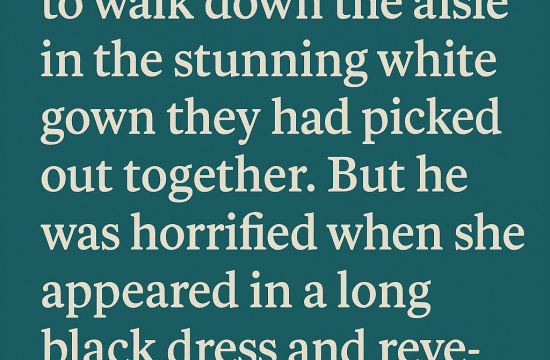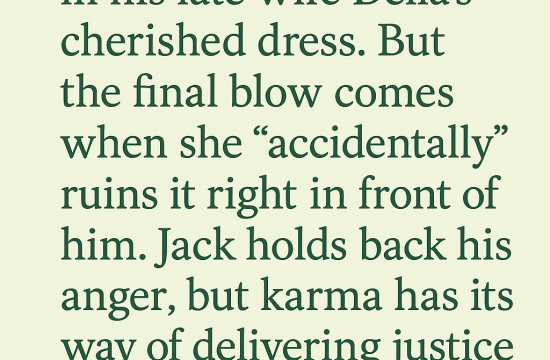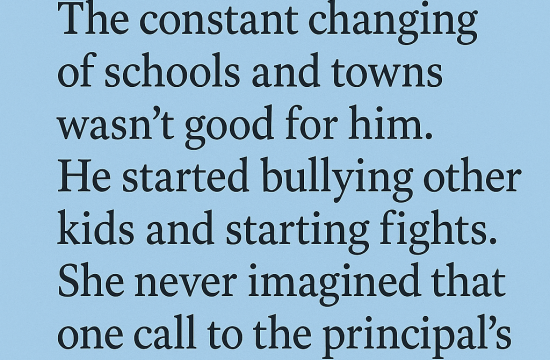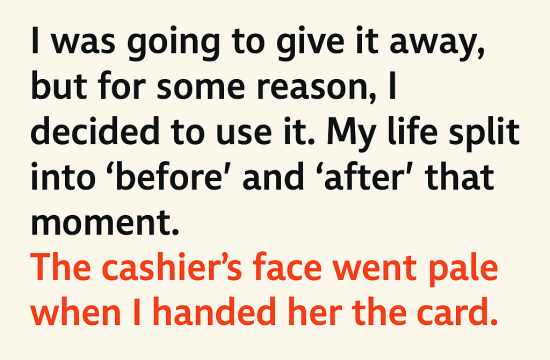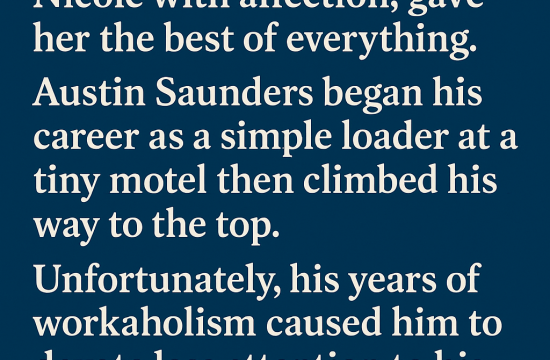One afternoon, a husband walked in to pick up his wife—one of our regular clients.
With a bold grin, she turned to him and said, “Pay for my manicure, babe. It’s $300.”
I froze. We only charge $50.
Still, he pulled out his card without hesitation, paid, and they walked out hand in hand.
Just minutes later, she stormed back in. Her heels clacked across the salon floor, her eyes sharp and blazing.
“You are NOT going to say anything to him. Got it?” she snapped.
Her name was Mirella. Impossible to forget. She wore designer heels like armor, carried herself with swagger, and smelled like jasmine with a trace of espresso. Loud, confident—but never rude.
“Why would you lie to him?” I asked, my voice barely above a whisper. The other stylists had gone quiet.
She looked around, then leaned in. “You don’t get it,” she hissed. “He owes me. Just say it was a deluxe package or something.”
Then she turned on her heel and left, her ponytail swinging like punctuation on a warning.
That night, the whole thing gnawed at me. I’d seen strange client behavior before—but this wasn’t petty or dramatic. It felt deeper. Like something was quietly unraveling beneath the surface.
A week later, Mirella returned as if nothing had happened. She winked, slipped me a folded $20 bill, and whispered, “Thanks for keeping quiet.”
I took it. But something in me tightened. Had I just helped her lie? Or was it never my place to question?
Two weeks later, her husband came in. Alone.
He looked unsure, pacing near the front desk.
“Is Mirella here today?” he asked.
“No,” I said.
He exhaled. “Figures.” Then paused. “Can I ask you something… honestly?”
My heart began to pound. I nodded.
“That day—when she said the manicure cost $300. Was that true?”
He didn’t look angry. Just tired. Like someone who’d been living in a fog too long.
“We don’t have any services that cost that much,” I said gently.
He nodded, as though he already knew. “Thanks,” he whispered, and left.
That night, I got a message from an unknown number.
“You had no right. I trusted you.”
It was Mirella.
I didn’t respond.
She never came back. Neither did he.
Almost two months passed. Then one afternoon, a woman I didn’t recognize walked in. Dark curls. Oversized sunglasses. Nervous energy.
She sat in my chair and said, “I think I need a change.”
Halfway through her haircut, she glanced at me in the mirror.
“You remember Mirella, don’t you?”
I nearly dropped my scissors.
“I’m her sister,” she said quietly.
She told me Mirella had left town. Her husband had filed for divorce after uncovering far more than just a $300 manicure. There were hidden credit cards. A second phone. Maybe even someone else.
She didn’t excuse Mirella’s choices. But she said something I’ll never forget:
“Mirella wasn’t a bad person. Just… tired of feeling invisible. That marriage made her feel small. So she made herself bigger—even if it meant pretending.”
That hit me hard.
I’ve been a stylist for years. I’ve seen tough women, broken ones, quiet ones hiding whole worlds behind eyeliner and silence. But I’d never really thought about why someone like Mirella would lie so boldly.
That night, I sat alone and realized something:
People will do almost anything to feel seen.
Some seek attention. Others control. Some create fantasy. Others lie.
And sometimes, when someone’s been invisible too long, they don’t ask for love—they reach for power instead.
I don’t think Mirella meant to hurt anyone. I think she was just tired of begging to be noticed.
Even if it meant becoming someone else entirely.
So, the next time a client claimed she’d had a $400 facial that never happened, I didn’t correct her.
I just smiled and asked, “Would you like a little extra rose oil today?”
Because sometimes, offering someone a little dignity—even if it’s wrapped in fiction—costs far less than the truth.
Life’s strange that way.
We’re all just trying to feel seen.
In our own way.



